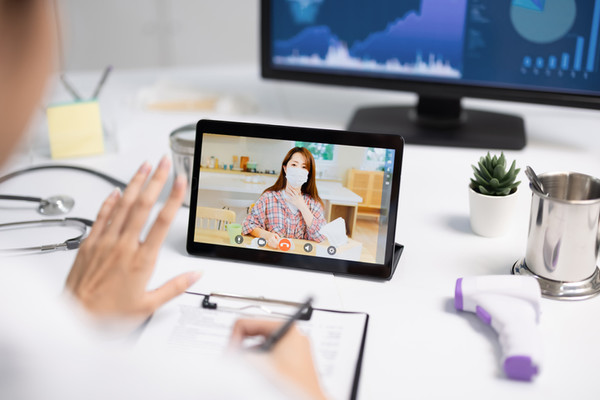First-time patients in non-face-to-face treatment introduced temporarily to cope with the Covid-19 pandemic accounted for 9 percent of the total telemedicine services provided.
Besides, the share of first-time patients in non-contract care was highest in the dermatology department, with 26 percent.

Shin Hyun-young of the opposition Democratic Party of Korea analyzed telemedicine in seven medical departments based on data from the Health Insurance Review and Assessment Service and released its results on Monday. The seven departments are internal medicine, surgery, ob-gyn, pediatrics, dermatology, urology, and neuropsychiatry.
According to the analysis, the seven departments provided about 18.33 million telemedicine services from February 2020 to September 2022. Among 9.83 million services that can be differentiated from first-time and second or more treatments, 890,000 were first-time patients, and 9 million were first-timers.
The share of first-time patients in telemedicine stood at 9.0 percent.
Dermatology showed the highest share of first-time treatment, as 5,456, or 25.9 percent, was first-timers out of 15,633 non-face-to-face treatments. Following its lead were ob-gyn (13.4 percent), surgery (11.6 percent), urology (9.5 percent), pediatrics (8.9 percent), internal medicine (8.7 percent), and neuropsychiatry (3.3 percent).
“The rates of first-time patients and second-or-more treatments in telemedicine varied according to whether the disease is acute or chronic and other characteristics of these departments,” Rep. Shin said. “Each department needs to conduct an in-depth analysis of how they can maintain telemedicine by appropriately mixing them with face-to-face medicine.”
Pointing out that the analysis showed a quite different result from the industry’s allegation that 99 percent of telemedicine platform users are first-time patients, the opposition lawmaker said, “As the share of first-time treatment could vary depending on whether it includes Covid-19-related services and whether they use platform service, the government must analyze the data systematically and device ways to institutionalize telemedicine.”
Meanwhile, Korea Startup Forum, including Korea Telemedicine Industry Council, had launched a signature drive to call for the government to allow non-face-to-face treatment for first-time patients, alleging that 99 percent of non-contract treatments were provided for first-time patients.
Related articles
- ‘All G7 nations allow telemedicine for new patients? Not true.’
- Assembly subcommittee’s rejection of telemedicine bill raises questions
- Is the institutionalization of telemedicine gaining momentum?
- Nearly 14 million Koreans used telemedicine in Covid-19 period
- Telemedicine industry calls for overhauling government’s pilot program
- Korea's telemedicine pilot project backfires, putting everyone at stake
- Government begins pilot telemedicine project to institutionalize it in a year

